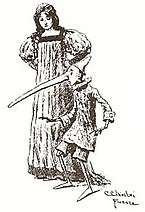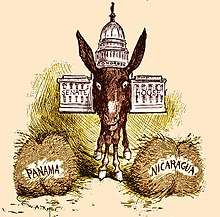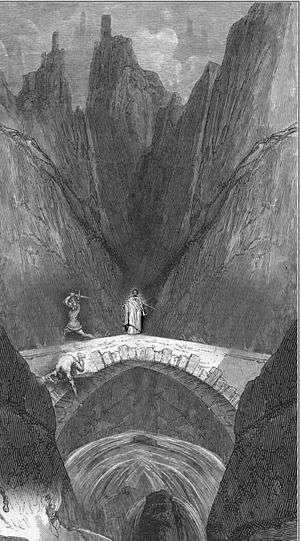Morton's fork
A Morton's fork is a type of false dilemma in which contradictory observations lead to the same conclusion. It is said to have originated with the rationalising of a benevolence by the 15th century English prelate John Morton.
The earliest known use of the term dates from the mid-19th century and the only known earlier mention is a claim by Francis Bacon of an extant tradition.[1]
Dilemma
Under Henry VII, John Morton was made archbishop of Canterbury in 1486 and Lord Chancellor in 1487. He rationalised a benevolence (tax) of Henry's by reasoning that someone living modestly must be saving money, and therefore could afford the benevolence; whereas someone living extravagantly was obviously rich, and therefore could afford the benevolence as well.[2][1] Morton's Fork may have been invented by another of Henry's supporters, Richard Foxe.[3]
Other uses
"Morton's fork coup" is a manoeuvre in the game of bridge that uses the principle of Morton's fork.[4][5]
See also
References
- "Morton's Fork". Oxford Dictionary of Phrase and Fable. Encyclopedia.com. Retrieved 12 September 2017.
- Morton's Fork. Oxford English Dictionary.
- S. B. Chrimes, Henry VII, p. 203.
- Frey et al. (1976). The Official Encyclopedia of Bridge, p. 295. ISBN 0-517-52724-3.
- Gray, Robert. The Bridge World, March 1973


